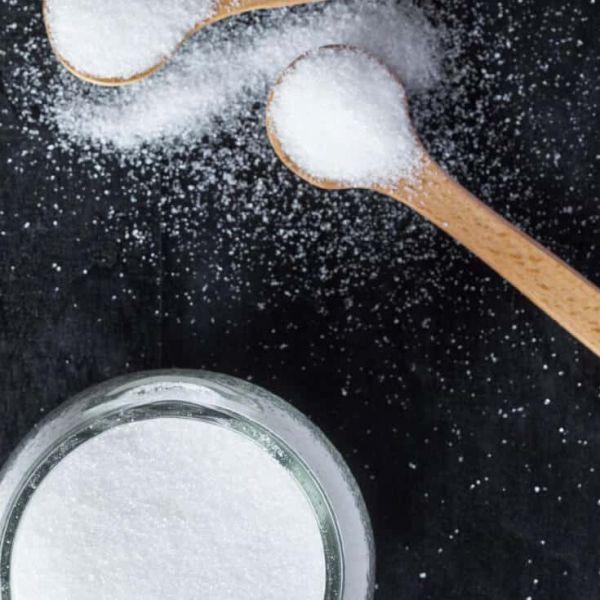Though it sounds new, erythritol has been around as long as grapes, peaches, pears, watermelon, and mushrooms. It’s a type of carbohydrate called a sugar alcohol that people use as a sugar substitute.
Erythritol is found naturally in some foods. It’s also made when things like wine, beer, and cheese ferment.Besides its natural form, erythritol has also been a man-made sweetener since 1990.
Erythritol May Help with Diabetes and Weight Loss
Unlike sugar and many artificial sweeteners, erythritol does not induce an insulin response or change glucose metabolism in the body. This is true both for healthy and obese people. In diabetics, replacing sugar with erythritol seems to improve blood sugar levels and some other clinical outcomes.
It does somewhat change hormones that control gut movement, so that food takes longer to move from the stomach to the small intestine. Another study also showed that non-obese people who consume a meal with erythritol feel more satiated than those who had a meal with real table sugar.
Erythritol Is Good for Dental Health
Sugar alcohols like xylitol and sorbitol are well known for their ability to help kill bad dental bacteria. However, erythritol is even more powerful than xylitol for dental health.
Erythritol can suppress bad bacteria growth, reduce acids in the mouth that can cause tooth decay, and inhibit biofilm formation. Therefore, sugar-free sweets sweetened with erythritol are considered safe for the teeth, and some dentists are even using it as a disinfectant.
It Is an Antioxidant
A cell-based study showed that erythritol can quench a reactive oxygen species (a chemically reactive chemical species that can cause cell damage). In addition, the study was able to show that it protected blood vessels of diabetic rats against oxidative chemicals and hardening of the arteries. This might be another reason why erythritol seems to help with diabetes.
In adults, consumption of erythritol at a high dose can cause uncomfortable stomach rumbling, nausea, and gas. This only happens when adults ingest a high dose, like at 50 grams (about 3.5 tablespoons) in one sitting.
In children, the dose that can cause diarrhea is lower, at around 0.71 grams per kilogram of bodyweight. The same study concluded that erythritol may only be safe for children at around 0.59 grams per kilogram of bodyweight.
In beverages, the safe concentration for children should not exceed 2.5% (6.25 grams in one cup), which means that it may be safer to mix erythritol with another natural sweetener like stevia.
Post time: May-21-2020
